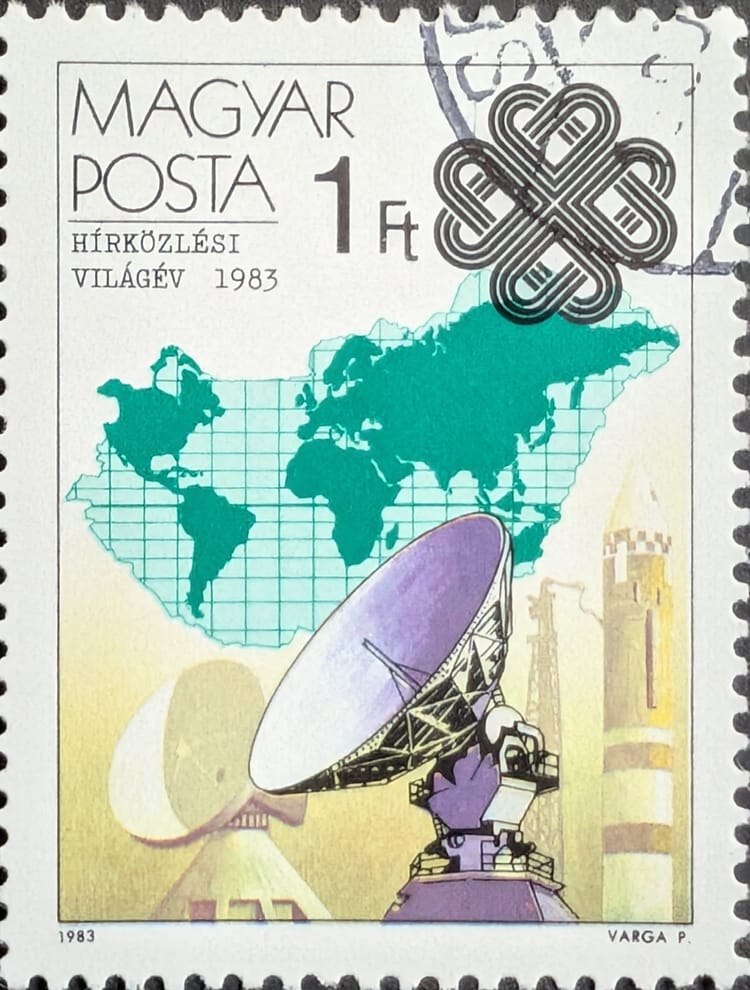Amazon Project Kuiper: Enabler of Fictional Rockets?

If the last emailed analysis looked incomplete, it’s because it was. Internet connection issues did not allow any of my updates and edits to the article to take. If you want to see the completed version, just go here.
Well, it's been six months, so it's time for another Amazon Project Kuiper (PK) announcement. And here it is: PK signed launch contracts with three companies to deploy all 3,236 of its satellites. Unsurprisingly, none of those launch contracts are with SpaceX. But, like PK's ABL Space announcement about selecting a launch provider without an operational rocket, the three contracts also will use rockets that haven't been launched yet. As noted in a previous analysis, for larger payloads, a company determined not to choose SpaceX, even if it is the least expensive, most reliable, and–this is the important part–only existing option, doesn't have other choices. So, untested and fictional (currently) launch vehicles get chosen for fictional satellites.
Choosing Wisely?
According to the press release, PK expects 83 launches will suffice to deploy the 3,236 satellites for its constellation. Arianespace, a European company, is on the hook for 18 launches relying primarily on its Ariane 64 (what Arianespace calls its "...highest performing European launcher…") within three years. Blue Origin's contract calls for 12 launches on its New Glenn rocket, with an option for 15 additional ones. United Launch Alliance (ULA) gets the majority–38 launches–using its Vulcan Centaur rocket. ULA already had a contract in place using 9 Atlas rockets to launch some of PK's satellites. SpaceNews notes that PK didn't disclose the contract values but did disclose that the company was spending billions out of its $10 billion budget for all three contracts.
Probably the most telling thing about these selections is that it points to PK's understanding of Blue Origin as the weak link in these selections. It gets the least number of launches–12. The following speculation is based on the likelihood that PK's and Blue Origin's people talk with each other on all channels, official and otherwise. Such communications access might mean that PK's managers likely have insight into Blue Origin's progress with New Glenn. And that same insight, however, is what likely allowed PK to have more confidence in ULA.
Blue Origin's tortoise-like progress in developing its BE-4 engine seems to be the only thing preventing ULA from completing and flying its new Vulcan rocket (which will use the BE-4). So PK's leaders may see that engine development is finally coming to a close and will turn into full-on manufacturing. ULA has a factory in Decatur, Alabama, that can theoretically crank out 40 rockets a year and has manufactured reliable rockets. Blue Origin's factory, on the other hand, may not be that capable and certainly hasn't had the opportunity to prove its reliability yet. PK's managers probably have information that confirms that claim.
Industry Savior?
Another data point is PK's selection of Arianespace for 18 launches. Not that long ago, Arianespace's CEO, Stephane Israel, complained that not even European governments supported the Ariane 6 as they weren't contracting with Arianespace to use it. That a U.S. company supports what those governments (logically) did not is an interesting story. It will be more interesting because European Union regulators have already charged Amazon with anti-competitive practices. Will they try to stop Amazon from using Arianespace for its next step in world dominance? Or will they decide that Arianespace is too critical and ignore the contract? Such are the hard decisions of a European bureaucrat.
What's most eye-opening about this announcement is that it again exposes the orbital launch industry’s fragility. A single company, in this case, Amazon, shouldn’t be the economic fountainhead for three launch companies. After all, as with SpaceX, what happens if Amazon disappears (this is unlikely)? Of course, many companies rely on Amazon every day for selling their wares on the company’s site, so, that’s not a huge leap for Amazon itself. Yes, ULA and Arianespace have other customers, but they historically have maintained low annual launch rates (when compared with SpaceX’s four+ launches per month).
Amazon’s contracts with those companies takes up whatever launch slack they may have had. They need Amazon more than Amazon needs them. If necessary, because those launch companies may not produce rockets on time—Amazon could just turn to SpaceX. Worse for those companies, it basically forces other potential customers interested in space operations to go either with SpaceX or consider using smallsats and the corresponding smallsat launchers. As explained in the next section, there are a few characteristics in SpaceX’s current launch operations that allows it to rapidly respond to more customer demand. But neither option builds a diversified loyal customer-base for those three companies.
Meanwhile, Arianespace, Blue Origin, and ULA will be launching rockets with unknown reliability. Each one will slowly start new rocket launch operations and with luck, no “kaboom” emerges over time. Or Murphy decides its time to make life more complicated. None have the demonstrated the capability to ratchet launch cadence as quickly as SpaceX can. ULA might, once (with some dedicated PK funds) it builds a launch complex dedicated to PK launches.
At the same time, it must be observed that perhaps this is a more desirable state of affairs in the launch industry than relying on the government and military to choose the same rocket launch service providers repeatedly. If PK succeeds in manufacturing its satellites, then the contracts will hopefully allow time for the companies involved to survive and become competitive. The good news is that PK seems on track to change its narrative from fiction to reality. It’s up to the launch companies, then, to bring their rockets into the real world. But they are on a tight schedule. PK has displayed little patience through its low launch allocations with Blue Origin.
Semper Gumby: Flexibility is the Key to Space Power
For those who don't monitor space launches quite so closely, it may be of interest to know that as of April 7, 2022, there have been 34 launch attempts for the year so far. That's about 11 launches per month. If that rate were to continue for the rest of the year (which is unlikely), the total launch attempts would come to 135 by the year's end.
A large share of successful launches for the year has been because of SpaceX and its Falcon 9. Since January, the company has launched four times a month, which would add up to a company record of 48 if the company stays at its current cadence. That is also unlikely, but for different reasons–SpaceX will likely launch more than that for the year, especially with OneWeb's switch to using the company's rockets.
With an already packed launch manifest for 2022, how can SpaceX cram more launches, especially quickly, to accommodate timely OneWeb satellite deployments? One reason noted in an earlier analysis is that SpaceX doesn't have to build its rockets for each customer because its reusable rockets apparently can be relaunched reliably and quickly. However, another reason is as simple (and obvious–I confess I didn't think about this aspect)–SpaceX can reschedule a non-paying customer–Starlink–and insert OneWeb's paid payload instead. This, at least, is what one of the company's leaders, Tom Ochinero, described during a SpaceNews interview:
The flexibility also comes from working with an internal customer, Starlink. "I look at them as my friend that I can talk to and bump off as needed," he said. "They can move or give up their vehicles. I've got a lot of flexibility there."
That's an intelligent thing to do on SpaceX's part: take money from customers when they come to SpaceX for a launch–otherwise, continue deploying Starlink satellites. However, how SpaceX will work with OneWeb to develop a satellite payload structure seems like it would be challenging while meeting the 2022 deadline. But then, it may be that the company's Transporter missions are significantly more complex, and the experience gained from those will make OneWeb's deployments a walk in the park.
The same scenario is likely playing out with NASA and crew transportation. SpaceX could use the flexibility it has with its Starlink missions and reschedule them while dropping in more commercial crew missions. As an aside, it's truly a shame that Starliner is not even a viable alternative in this conversation. Boeing doesn't know how to recover from embarrassment and failure. Maybe one day soon, though.
Although, it isn't soon enough.
NASA and Lucy's Football
NASA is still playing politics by pretending cooperative space operations on the International Space Station (ISS) are above politics and war. SpaceNews wrote up a story of the U.S. space agency's attempts to coax Rogozin and Roscosmos into a crew ride barter agreement. While it may seem to align with the idea that "science and discovery trumps differences," there's still the fact that the Russian government does not hold a similar view. It's willing to end whatever is left of Russia's space sector and keep the ISS hostage.
The Russian government's actions and words make NASA's "white tower" view and efforts seem naive, which likely encourages Putin and Rogozin. Although Rogozin's threats ring hollow as he doesn't follow through on most of them–or worse (for him), the ones he does follow through on are inconsequential to the global space economy in the long term.
They become consequential as SpaceX and other companies continue their commercial operations. We see this as SpaceX prepares to launch a commercial mission this week to the ISS for a commercial company, Axiom. Whether Axiom itself is a money-making venture is still a question worth pursuing. However, suppose Axiom somehow stays in existence long enough to deploy its space station modules. In that case, it certainly eliminates the political brinkmanship that hampers not just the ISS today, but both Roscosmos’ and NASA's missions, as we've seen historically. Because Russia's government isn't the only one willing to hold the ISS hostage–some U.S. politicians do it routinely.
But, the fact is that a private company, SpaceX, can launch humans into orbit, whether as ISS astronauts or private crews, and it doesn't matter what a U.S. politician or a Russian lackey thinks about it. That's a good thing, and other commercial companies need to be encouraged to be able to do the same.




Comments ()